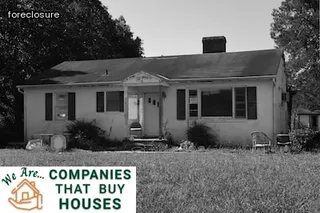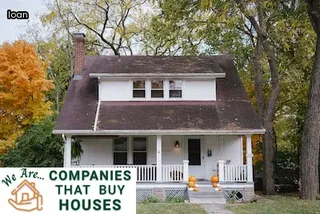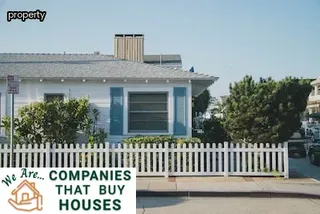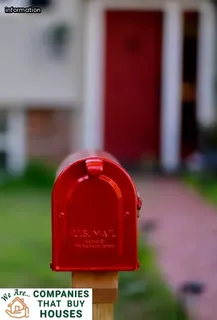Foreclosure is a complex legal process that can have devastating impacts on homeowners. It's important to understand the laws in New York if you are facing foreclosure or are at risk of losing your home.
Foreclosures begin with a notice of default, which is a formal document sent by a lender to the homeowner. The notice informs the homeowner that payments have not been made and that the lender intends to start foreclosure proceedings.
After receiving this notice, the borrower must file an answer with the court within a certain period of time, usually 30 days. If no answer is filed, then the court may issue a judgment of foreclosure which allows for the eviction of the homeowner from their property.
In New York, once a foreclosure judgment has been issued, it cannot be reversed or vacated unless specific legal criteria are met or unless there was fraud involved in obtaining it. Homeowners facing foreclosure should consult with an experienced attorney who can explain all applicable laws and guide them through the process.

Foreclosure is a process in which lenders can take back properties from homeowners who are struggling to make payments. In New York, this process is initiated when the lender files a foreclosure lawsuit against the homeowner.
After filing the lawsuit, a summons and complaint will be issued to the homeowner with details about the foreclosure. The homeowner will then have an opportunity to respond to the lawsuit and file an answer with their defense.
If no answer is received by the court, a default judgment may be entered against the homeowner and they could potentially lose ownership of their property without ever having gone through a trial. Once a judgment is obtained, lenders are able to proceed with selling off the home at auction or through other methods approved by state law.
Homeowners should understand that there are laws in place that protect them during this process and it’s important for them to seek legal advice if they feel they’re not being treated fairly throughout the process.
Navigating foreclosure laws in New York can be a tricky process for homeowners, but there are preforeclosure alternatives and resources available to help. Many homeowners facing financial hardship may be able to negotiate a loan modification with their lender that reduces interest rates, extends the repayment period, or even forgives part of the loan balance.
Homeowners should also explore refinancing options and consider talking to a HUD-approved housing counselor who can provide guidance on the best course of action. Other potential solutions include selling the home to an investor who offers cash for houses, taking out a reverse mortgage, or working with a home buyer assistance program for struggling families.
In addition, local government agencies may offer foreclosure prevention services such as legal help from pro-bono attorneys or temporary rental assistance. No matter what situation you’re in, it is important to stay informed and understand all of your options before making any decisions about your home.

In New York, a creditor can begin the foreclosure process after a homeowner has failed to pay their mortgage or other related debts for at least 90 days. This is known as a “default” and is documented in the Notice of Default that must be served to the homeowner by the creditor.
After this process commences, the homeowner will have 90 days to make up their missed payments before foreclosure proceedings can begin. During this time period, homeowners may also choose to negotiate with their creditors in an attempt to avoid foreclosure.
It is important for New York homeowners to understand these conditions and procedures in order to protect themselves from unnecessary losses.
When a foreclosure filing is made in New York, the process begins immediately. Homeowners are served with a summons and complaint, which will explain the lender's intent to foreclose on the property.
The homeowner then has 20 days to respond to the complaint and answer any allegations that may have been made about their mortgage payments. If an answer is not filed within this time frame, the homeowner will automatically lose their rights to contest the foreclosure in court.
Once an answer is filed, a court hearing will be scheduled and a judge will determine whether or not foreclosure is necessary. If approved, the foreclosure process will continue until the home is sold at auction or returned to its original owner.
During this time period, homeowners can still negotiate with their lender to try and avoid foreclosure and potentially keep their home.

When it comes to foreclosure laws in New York, one of the most important questions that homeowners may have is whether or not there is a statute of limitations on foreclosures in the state. The answer is yes - under New York law, lenders must start a foreclosure action within six years from the date of the last payment made by the homeowner.
This does not mean that homeowners will be able to keep their homes for six years without making payments, as lenders are still able to take steps such as filing a lis pendens before this period ends. However, if no action has been taken after six years, then the lender can no longer pursue foreclosure against the homeowner.
It is important to note that these regulations may vary depending on certain circumstances and should be discussed with an attorney who specializes in foreclosure law in New York and can provide tailored advice regarding a specific situation.
Navigating the foreclosure laws in New York can be a daunting process for homeowners. To avoid the possibility of losing their home, it is essential to understand the foreclosure rules and regulations specific to New York.
If you are in danger of foreclosure, there are steps you can take to prevent it from happening. First, contact your lender as soon as possible if you find yourself unable to make payments on your mortgage.
Speak openly and honestly with them about your situation and discuss potential solutions for avoiding foreclosure. Working together with your lender may include refinancing options or a loan modification that will help lower your monthly payments.
Additionally, researching local organizations that offer assistance with avoiding foreclosure can also be beneficial. These organizations offer advice on budgeting and money management skills, along with connecting homeowners to financial resources and programs that provide additional support.
Taking proactive steps now can help protect your home from being taken away through the foreclosure process in New York.

When it comes to foreclosure, homeowners in New York have many options available to them. Financial assistance for those facing foreclosure is available through government programs and nonprofit organizations.
Homeowners should start by exploring the resources provided by the New York State Department of Financial Services which offers information on loan modifications, forbearance, repayment plans, and other forms of financial assistance. The department also provides resources for understanding the laws governing foreclosure in New York.
In addition, there are several non-profit organizations that provide free counseling services and assistance with applying for financial aid programs. Homeowners may be eligible for grants or loans to help cover expenses related to foreclosure.
Finally, it is important to note that borrowers can always contact their lender or mortgage servicer to discuss any questions or concerns they may have about their situation.
Preforeclosure is a stressful and difficult time for homeowners in New York, but understanding the rights of homeowners during this period can help ease the burden. Homeowners have the right to remain living in their home until the foreclosure sale is complete.
This means the mortgage lender cannot force the homeowner to leave before then. Homeowners also have the right to receive notice of any legal action taken by the mortgage lender.
This includes a lawsuit or other type of legal case that affects their home loan. Furthermore, they are entitled to receive any notices related to foreclosure proceedings, such as those sent out by their lender or court documents associated with their case.
Homeowners should take advantage of these rights and use them to ensure that they understand all aspects of foreclosure proceedings so they can make informed decisions about how best to protect their interests and rights during preforeclosure.

Preparing for a mandatory settlement conference can be intimidating, but it's important to understand the foreclosure laws in New York and what to expect. Before attending, homeowners should familiarize themselves with the timeline of events leading up to the conference, including any notices sent by their lender and any deadlines for responding.
It is critical that homeowners attend the settlement conference on time and bring all necessary documents, such as financial statements, bank records and proof of income. Understanding your rights as a homeowner is key when preparing for a settlement conference; existing laws may provide ways to delay or even stop foreclosure proceedings if certain criteria are met.
Homeowners should also have a plan in place to make payments going forward, as well as consider legal options like bankruptcy if they are unable to reach an agreement with their lender. An experienced attorney can provide guidance throughout this process and help ensure that homeowners understand their options before entering into any agreement with their lender.
If a homeowner and the lender are unable to reach an agreement at settlement conference, then the foreclosure process will continue. This means that the court will issue a judgment of foreclosure and sale, which is a court order that grants the lender the right to take ownership of the property.
After this happens, a notice of sale must be published in a local newspaper for three consecutive weeks and then posted on the property itself. The actual foreclosure sale usually takes place after 20 days from when the notice was first published.
If no bidder shows up at the auction, then the lender can become owner of the property through a process known as “credit bidding”. Once this happens, homeowners have up to one year to redeem their property by paying off any outstanding debt plus interest or they can be evicted if they fail to do so.

Navigating the foreclosure process in New York can be intimidating and complex, but it is possible to stop or delay a foreclosure. Homeowners should become familiar with their legal rights and obligations by studying the foreclosure laws in New York.
Understanding the foreclosure process, such as what triggers it, what homeowners can do to stop it, and how long it usually takes, can help them know their options and make informed decisions. One of the most effective strategies for avoiding foreclosure is to contact your lender directly as soon as you realize that you may have difficulty making payments.
The sooner you reach out and explain your financial situation, the more likely your lender will be able to offer a solution that works for both parties. Another tactic is to consider refinancing or loan modification if an affordable repayment plan can be agreed upon with the lender.
Additionally, if there are any errors or violations of state law during the foreclosure process, homeowners may be able to use this as leverage to delay or even stop the proceedings altogether.
Navigating post-foreclosure challenges can be difficult and stressful for homeowners in New York, especially when they are unaware of the laws governing foreclosure. With a better understanding of the foreclosure process, including timelines and information about how to protect your rights, you can be better prepared for the difficulties of recovering from foreclosure.
Knowing what happens after a foreclosure is just as important as understanding the initial proceedings; this guide will cover both topics so that you can make informed decisions about how to move forward with your finances. When it comes to understanding post-foreclosure rights and obligations, it's essential to review state and federal laws, as well as any relevant mortgage or loan documents.
Additionally, there are numerous resources available to help you navigate through all stages of the foreclosure process in New York. From finding assistance programs and counseling services to learning about potential legal remedies, this guide will provide an overview so that homeowners can make decisions confidently and successfully manage any post-foreclosure challenges.

New York homeowners facing foreclosure may find help with their mortgage and property related issues from a variety of sources. For example, they can talk to their lender or a housing counselor certified by the U.
Department of Housing and Urban Development (HUD). The New York State Division of Financial Services also offers resources for those facing foreclosure, including access to free counseling from Homeowner Protection Programs (HOPP) partners.
Furthermore, legal assistance may be available for qualified individuals through organizations such as Legal Services NYC and The Foreclosure Prevention Law Project at the Legal Aid Society. Homeowners in default should also look into government programs like HAMP and NYS MAP that provide loan modifications for those who qualify.
However, it is important to remember that understanding your rights under the law is key to making informed decisions when dealing with mortgage and property related issues.
As a homeowner facing foreclosure in New York State, understanding the laws and regulations regarding foreclosure is essential for protecting your rights throughout the process. It is important to understand your rights as a borrower, including being informed about the foreclosure process and having access to legal counsel.
Knowing when to seek legal advice can help you protect your rights and ultimately save your home from foreclosure. In addition, it is important to be aware of any state or federal programs available that may provide financial assistance or allow for loan modification.
It is also wise to look into any potential options for refinancing or negotiating with the lender in order to avoid foreclosure if possible. Finally, know what documents are required by state law in order to file a petition or complaint relating to foreclosure proceedings as well as any deadlines that may apply.
By educating yourself and understanding the laws surrounding foreclosure in New York State, you can better protect yourself during the process and hopefully save your home.

When facing a foreclosure in New York, it is important to understand the legal representation options available. Homeowners can benefit from professional legal assistance when navigating the various foreclosure laws and regulations that exist in New York.
An experienced attorney can provide guidance on how to deal with the financial aspects of foreclosure, including loan modifications, repayment plans and bankruptcy. They can also help homeowners understand their rights and obligations under New York's foreclosure laws, such as when they must pay any outstanding debt or if they are required to make certain payments.
Additionally, an attorney may be able to negotiate with lenders on behalf of the homeowner to reduce monthly payments or even settle any remaining debts in full. Ultimately, an experienced lawyer can provide invaluable assistance during a time of financial hardship by providing knowledgeable advice and helping homeowners navigate the complexities of New York's foreclosure laws.
Default notices and judgment entries are the beginning of a foreclosure process for homeowners in New York. Understanding these documents is critical for any homeowner who has fallen behind on mortgage payments, as they explain what will happen if the payments remain unpaid.
The notices detail how much money is owed, how long the homeowner has to pay, and what action can be taken if the debt is not paid by a certain date. Judgment entries explain how much interest may be added to the total amount owed and provide information about when foreclosure proceedings may begin.
It’s important for homeowners to know their rights in this situation, and it’s recommended that they contact an experienced attorney or financial advisor as soon as possible to help navigate through this complicated process. Knowing all of the details outlined in these documents can help ensure that all deadlines are met and that homeowners have a clear understanding of their options before making any decisions.

When facing a foreclosure in New York, homeowners may be able to take advantage of potential solutions available to them following a court judgment entry. Depending on the circumstances, homeowners may be able to work with their lender to negotiate new terms or potentially have their loan modified.
In some cases, a repayment plan may be established for the homeowner to get current on past due payments or even reduce the amount owed. Additionally, refinancing the existing loan with a new lender may also provide some relief from foreclosure proceedings.
Furthermore, filing for bankruptcy can help stop any further action taken by creditors and lenders during the process. It is important for any homeowner facing foreclosure in New York to understand their options and speak with an experienced attorney who can advise them of their best course of action.
Selling a property before or after filing for foreclosure in New York can be a complex process, and it is important for homeowners to understand the laws governing foreclosures in the state. Knowing when and how to sell your home before or after a foreclosure action is critical for ensuring that you receive the best possible outcome from your transaction.
In New York, there are several steps involved in selling a property during or after foreclosure proceedings. Before initiating any type of sale, homeowners must first provide notice to their lenders of their intent to sell the property.
After this is done, they must then obtain approval from their lender before they can proceed with the sale. Additionally, homeowners must also provide an appraisal of the property's value, as well as determine if there are any liens against the property that may impact its sale.
Finally, they should also be aware of any tax implications associated with selling a foreclosed home in New York. By understanding these key steps, homeowners will be better equipped to make informed decisions when it comes to selling their homes during or after foreclosure proceedings in New York.

It is important for homeowners in New York to be informed about their rights when dealing with potential foreclosure. Unscrupulous lenders can take advantage of unsuspecting or desperate homeowners, so it is essential to arm yourself with knowledge of the laws and regulations regarding foreclosure in your state.
Researching the laws and understanding the legal process can help you identify any red flags that may indicate a lender is not acting in your best interests. Additionally, take some time to look into the reputation of a lender before entering into an agreement.
Talk to other homeowners who have worked with them and search for reviews online. It is also important to understand what options are available for homeowners facing foreclosure.
Knowing the terms of repayment plans and loan modifications can help protect you from being taken advantage of by unscrupulous lenders. Educating yourself on foreclosure laws in New York can reduce risks associated with dealing with lenders who don’t have your best interests at heart.
Foreclosure is a complex legal process that can be difficult for homeowners to understand. In New York, the length of time it takes for a bank to foreclose on a house depends largely on the type of foreclosure the lender has elected to pursue.
For instance, in judicial foreclosure proceedings, once a homeowner is served with a summons and complaint, they have 20 days to answer. The court will then issue an order allowing the lender to proceed with foreclosure if no response is received; this usually takes three months or more.
On the other hand, nonjudicial foreclosures are typically much speedier and can take as little as four months from start to finish if all paperwork is properly filed. Homeowners should consult with an attorney to better understand their rights under New York foreclosure laws.

When it comes to understanding foreclosure laws in New York, homeowners need to be aware of why people let their house go into foreclosure. In many cases, the primary cause is an inability to keep up with mortgage payments.
This can be due to a variety of factors such as job loss, medical expenses, or other financial struggles that may arise. Another reason for people allowing their home to go into foreclosure is because of an inability to refinance.
Refinancing can help reduce monthly payments by lowering interest rates, but if a homeowner does not qualify for refinancing then they may feel like they have no other option than foreclosure. In order to avoid foreclosure, homeowners should consider all of their options before making any decisions and reach out for assistance from local organizations or government programs like HAMP that are designed to help those facing financial hardship.
In New York, pre-foreclosure can last anywhere from 6 to 18 months, depending on the specific foreclosure laws of the state. Homeowners should be aware that if they are unable to make payments on their mortgage, they may be subject to the pre-foreclosure process.
During this time, lenders have the right to start proceedings against homeowners who are not able to pay their mortgage and can take possession of their home if they fail to do so. To avoid foreclosure in New York, homeowners should be familiar with their state's foreclosure laws and understand how long a property can stay in pre-foreclosure before it is sold at auction or repossessed by the lender.
Additionally, it is important for homeowners to contact a qualified attorney or financial advisor as soon as possible in order to receive advice and guidance about the best course of action for avoiding foreclosure. By understanding how long a house can remain in pre-foreclosure in New York, homeowners are better equipped to protect themselves from losing their home and their investment.
Foreclosure is a legal process by which a homeowner loses ownership of their home. In New York, a foreclosure begins when the lender files a lawsuit against the homeowner for failing to meet their mortgage payment obligations in accordance with their loan agreement.
If the judge rules in favor of the lender, they will issue an Order of Foreclosure that allows the lender to take possession of the property and sell it at an auction. The proceeds from this sale are used to pay off any remaining debt owed to the lender.
Homeowners facing foreclosure should be aware of their rights under New York law, including their right to receive notice before proceedings begin and their right to redemption if they are able to bring their loan current within certain timeframes. Understanding how foreclosures work in NY is essential for homeowners facing this difficult situation so they can protect themselves and make informed decisions about their financial future.
A: No, you should try to avoid foreclosure if possible. Contact your lender or a housing counselor to discuss your options. You may be able to work out a payment plan, forbearance agreement, or other financial solution that can help you avoid the costs and long-term damage of foreclosing on your mortgage loan.
A: If the lender has filed a Motion for Summary Judgment against you, it is best to negotiate a Settlement Agreement with the lender before the court grants the Motion. This agreement will help you avoid foreclosure and may also provide other benefits such as waived fees and reduced interest rates.

A: If you're an owner-occupied homeowner in New York facing foreclosure, you should explore all available loss mitigation options to avoid foreclosure, including loan modification and repayment plans. You may also consider consulting with a lawyer to discuss the potential of filing a lawsuit against your lender to pursue other alternatives such as forbearance or litigation.
A: Letting your house go into foreclosure in New York can have serious negative repercussions. Your credit score will take a hit, making it more difficult to qualify for new loans and mortgages in the future. You may also owe certain taxes associated with the foreclosure process. Additionally, if you are an owner-occupied homeowner, you may be subject to legal action from your lender as they try to recoup their losses. Therefore, it is important to explore all other options before deciding whether or not to let your house go into foreclosure in New York.
A: It is important to explore all available options before deciding if you should let your house go into foreclosure. During the discovery process, you may be able to uncover evidence of predatory lending practices that could potentially be used to avoid losing your home. You should also consider negotiating a loan modification with your lender or enlisting the help of a housing counselor to explore other alternatives.

A: Generally, no - lenders are unable to pursue a deficiency judgment against owner-occupied homeowners in New York after a foreclosure. However, taxes may still be owed on the unpaid balance of the mortgage loan and some debt may become time-barred after a certain amount of time.
A: If you let your house in New York go into foreclosure, it could affect your credit score, as well as possibly make it difficult to obtain future loans. Additionally, the language of the Promissory Note may determine whether or not you can be held liable for any remaining balance or costs associated with foreclosure proceedings. To discuss these issues and other potential consequences, you should contact a housing hotline such as the Homeowner Protection Program (HOPP) at 1-800-569-4287.
A: Homeowners in New York facing foreclosure should be aware of the state's statutes and regulations governing foreclosures. The primary law is Real Property Actions and Proceedings Law (RPAPL) section 1304, which outlines the process for mortgage lenders to initiate a foreclosure. It also provides protections for homeowners such as notice requirements and limits on late fees. Other laws that may affect a homeowner’s rights include the Fair Debt Collection Practices Act, Equal Credit Opportunity Act, and Truth-in-Lending Act.

A: Yes, it is important to understand the Foreclosure Laws in New York and the Homeowner's Rights and Responsibilities. Depending on your circumstances, you may have Options for Homeowners Facing Foreclosure such as loan modification, forbearance, or repayment plans. You can also seek Legal Assistance for Homeowners in Foreclosure for advice about how best to proceed with your situation.
A: Foreclosure laws in New York are governed by the Real Property Actions and Proceedings Law (RPAPL). The RPAPL requires a borrower to be provided with adequate notice before any foreclosure action can take place. The law also allows borrowers to challenge the validity of the mortgage or debt secured by their property, as well as to raise defenses against a foreclosure action. Furthermore, special protections are available for owner-occupied homeowners facing foreclosure due to predatory lending practices.
A: Homeowners in New York are protected by a variety of foreclosure laws, including the Mortgage Foreclosure Mediation Program. This program requires lenders to offer mediation services to borrowers facing foreclosure. Additionally, New York law prohibits lenders from initiating foreclosure proceedings until 90 days after the borrower has defaulted on their loan payments, and provides certain additional protections for distressed homeowners.

A: Homeowners facing foreclosure in New York have certain rights and responsibilities under state law. Homeowners must be notified of their rights at least 30 days before the mortgage default or foreclosure process begins. In addition, all foreclosures must adhere to the legal standards set forth by New York’s foreclosure laws. Homeowners have the right to dispute any alleged violations of these laws. They also have the responsibility to respond to all communication from their lender and make payments on time to avoid defaulting on their loan. Finally, homeowners should explore all options available to them if they are facing foreclosure, including loan modifications, deed-in-lieu of foreclosure, or short-sale agreements with their lender.
A: Yes, New York has foreclosure laws that protect homeowners from predatory lending practices and provide certain rights and responsibilities for borrowers. These include the right to receive a 90-day pre-foreclosure notice, the right to enter into loan modification agreements, and the right to receive a written document outlining all of your rights.
A: Homeowners in New York have certain rights and responsibilities when it comes to foreclosure laws. Your promissory note will likely become due immediately, meaning you may have to pay off your entire loan balance all at once. You should also be aware that you may incur additional fees or penalties for non-payment. Furthermore, if your lender decides to pursue a deficiency judgment, you could be held liable for any remaining balance after the foreclosure sale of your home.

A: Data regarding foreclosure in New York can be found on the Federal Reserve Bank of New York's website. The information is updated quarterly, with the most recent data being from the fourth quarter of 2019.
A: If you let your house in New York go into foreclosure, you risk losing your home, having a negative credit rating, and being held liable for any remaining balance on the mortgage. It is important to understand the foreclosure laws in New York and consult with a qualified attorney to understand your rights as a homeowner.
A: Foreclosure laws in New York protect homeowners from predatory lending practices and allow them to explore options such as loan modifications, forbearance or repayment plans, or short sales. Homeowners have the right to receive notice of any foreclosure proceedings and can challenge the lender's right to foreclose if they believe it is not valid. They also have the responsibility to work with their lender to try to resolve the situation and must be aware of their rights when negotiating with lenders.

A: Homeowners in New York have several options when facing foreclosure, such as loan modification and mortgage default. It is important for homeowners to understand their rights and responsibilities under the foreclosure laws in New York before making any decisions. They may also be able to negotiate a Promissory Note with their lender or seek legal counsel if they believe they were subject to predatory lending.
A: If you let your house in New York go into foreclosure, the lender may hold a foreclosure sale and depending on the outcome of that sale, they may pursue a deficiency judgment against you. It is important to explore other options such as loss mitigation before letting your house go into foreclosure, as it can drastically impact your credit score and financial stability.
A: If the court approves the foreclosure, then you will likely be responsible for paying off any remaining balance to the mortgage lender. In addition, depending on your situation, you may have other legal liabilities that you could be held accountable for if the court deems it necessary.
A: As an owner-occupied homeowner in New York facing foreclosure, you may be able to work with your lender to negotiate a loan modification, forbearance agreement, or repayment plan. You can also explore other options such as short sale, deed in lieu of foreclosure, or cash for keys agreement. It is important to speak with an attorney who specializes in foreclosure laws in New York to understand your rights and responsibilities.